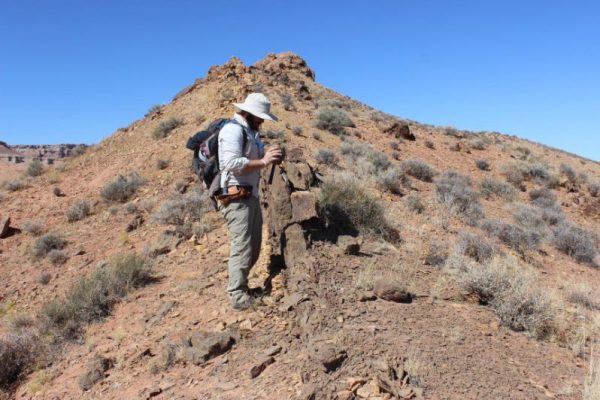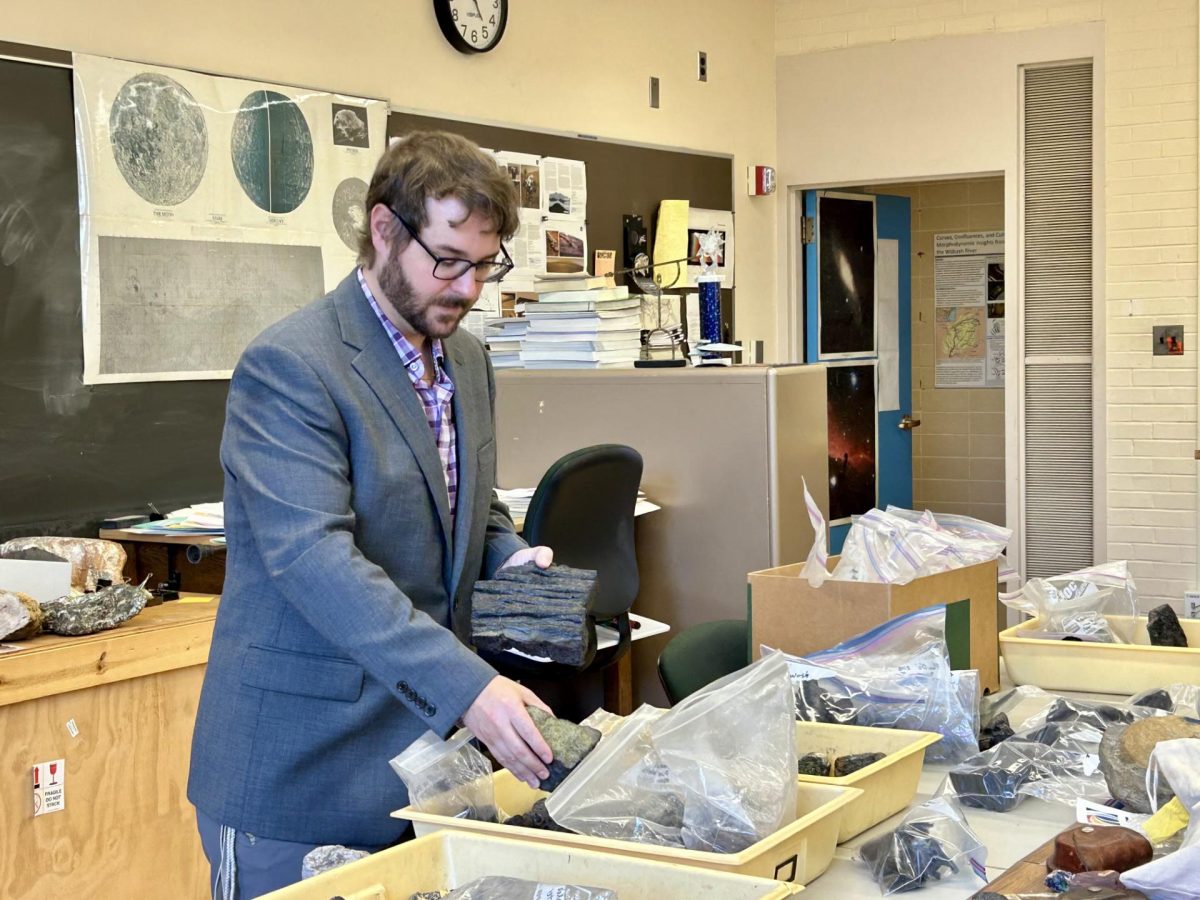An Eastern Illinois University professor and NASA contractor is researching Venus from EIU’s backyard.
Geology professor Jake Crandall, with the help of an EIU student, is utilizing analog sites, radar and remote sensing techniques to study the potential geologic activity of Venus.
Crandall joined the Analogs for Venus’ Geologically Recent Surfaces Initiative (Avengers), a group of thirty experts across the world studying Venus, two years ago to provide his expertise helping the group look for terrestrial analog sites.
Analog sites are locations on one planet that are similar to another location in space. For example, Utah has sulfur deposits similar to the deposits found on Mars, Crandall said.
Venus is a volcanic planet, meaning the best site for Crandall to find analog sites on Earth is near active volcanoes.
So far, the primary analog sites for the Avengers’ research are Mount Etna off the coast of Sicily, Italy, and lava flows in Hawaii, according to Crandall. These sites are comparable to Idunn Mons, a shield volcano on Venus. Shield volcanoes are the largest type of volcano on Earth.
To determine what is a good analog site or not, samples of rocks are brought back to labs and cut into very thin portions by researchers, Crandall said. One of these labs is EIU’s Physical Science Building.
Jasper Tyner, a senior geology major, helps Crandall research these sites in hopes of finding new data that can help the Avengers. Tyner also helps use radar and remote sensing techniques to “see through” Venus’ harsh atmosphere to learn more about how the rocks on the planet’s surface have changed over time, he said.
Any data found is then presented at the Lunar and Planetary Science Conference held each year in Houston, Texas, to help understand how Venus formed, Crandall said.

New information could go on to influence the theory of how the solar system was formed as well.
Currently, Tyner said he is helping create a poster to take to LPSC where he will be the first student from EIU to attend the conference.
This research effort is not only based in the United States, as the project is an international effort. It features the likes of NASA, the European Space Agency, the India Space Agency, the China National Space Administration and the State Corporation for Space Activities based in Russia.
Crandall said the project has been, “a major international bridge in the volcanic and planetary society,” as everyone gets along with each other…mostly.
Only a few missions are selected to move into the creation and deployment phases, resulting in, as Crandall said, “very vigorous debates” between the different international teams on whose project deserved to go forward. At LPSC, there has been debate regarding if Venus is or isn’t geologically active, he said.
One reason only a few missions are selected is due to the cost. According to Crandall, it’s highly expensive to create and deploy missions to Venus. The landers and probes sent to the planet don’t last long and cost millions.
For example, the Soviet Union launched the Venera 13 lander to Venus that only lasted 127 minutes on the surface, or two hours and seven minutes, according to NASA.
Currently regarding Venus, the VERITAS and DAVINCI+ missions, both designed to test the surface and atmosphere of Venus respectively, were given the green light to proceed and are currently in the creation progress following the funding phase. Both missions are owned by NASA.
Another issue resulting in limited missions is due to contracting issues with high-value contractors, like Boeing.
Crandall said there are other various factors to account for that could hinder missions like the math and science behind the project taking too long and the possibility of helium and hydrogen leaks due to the small particles being hard to contain.
“People forget that space is really difficult,” said Crandall.
To mend this, both Crandall and Tyner believe that interest in space exploration and research deserves to go up. Tyner also mentioned how when he was younger, a lot of kids wanted to be astronauts, but that isn’t the case nowadays.
“It’s going to be slow progress if interest in space doesn’t increase,” said Tyner.
Luke Brewer can be reached at 581-2812 or at lsbrewer@eiu.edu.

















![[Thumbnail Edition] Senior Foward Macy McGlone, getsw the ball and gets the point during the first half of the game aginst Western Illinois University,, Eastern Illinois University Lost to Western Illinois University Thursday March 6 20205, 78-75 EIU lost making it the end of their season](https://www.dailyeasternnews.com/wp-content/uploads/2025/03/WBB_OVC_03_O-1-e1743361637111-1200x614.jpg)



















































![[Thumbnail] Eastern's Old Main was quiet Thursday morning while educators who had left the office to strike picketed outside.](https://www.dailyeasternnews.com/wp-content/uploads/2025/04/Strike_01_LT_O-800x1200.jpg)




